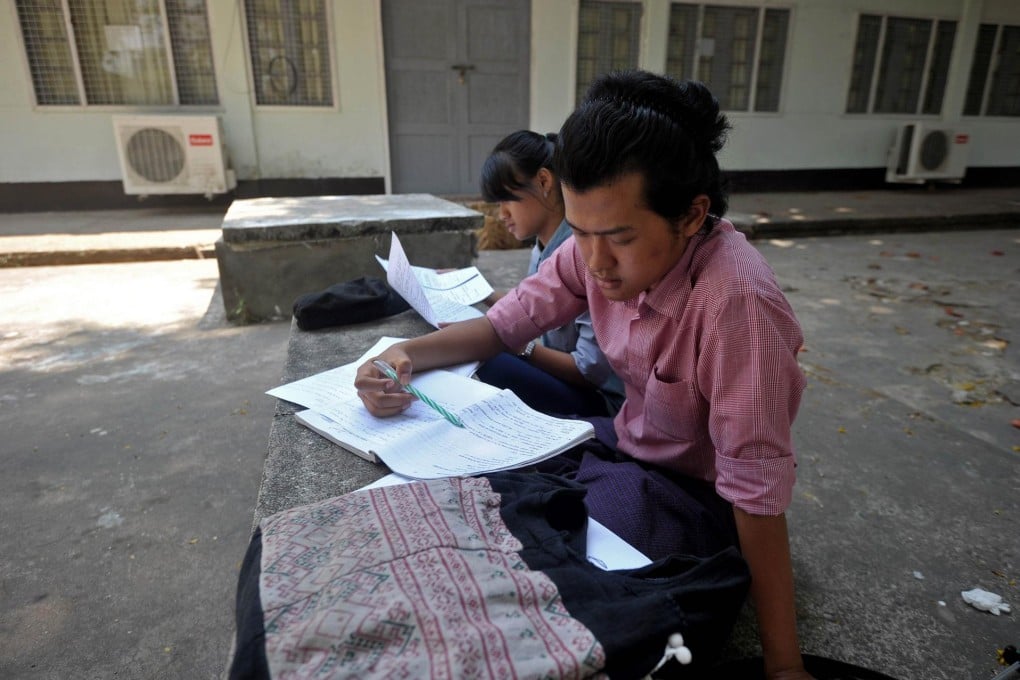Students in Myanmar seize chance to assert political freedom
Every morning Su Wai Phyo wakes before dawn to do something that was banned in Myanmar until recently: study politics. The 23-year-old is one of a handful of students taking part in a new political science diploma for postgraduates at the University of Yangon - a course that would have been unthinkable under the country's military junta.

Every morning Su Wai Phyo wakes before dawn to do something that was banned in Myanmar until recently: study politics.
The 23-year-old is one of a handful of students taking part in a new political science diploma for postgraduates at the University of Yangon - a course that would have been unthinkable under the country's military junta.
"Young people need to understand politics," she says after a recent early morning class. "They need to know about those who are ruling us - whether those in power are doing good things for us or doing bad things."
She will be among millions of new voters able to choose who governs them for the first time in decades later this year. The harsh military rule gave way to a quasi-civilian reformist government in 2011.
But while Myanmar's turnaround initially won widespread praise, prompting a flood of foreign investment, there are fears it is now backsliding on key reforms.
Those fears were heightened earlier this month when police cracked down on student-led protesters calling for education reform. The arrest of at least 130 sparked international condemnation.
